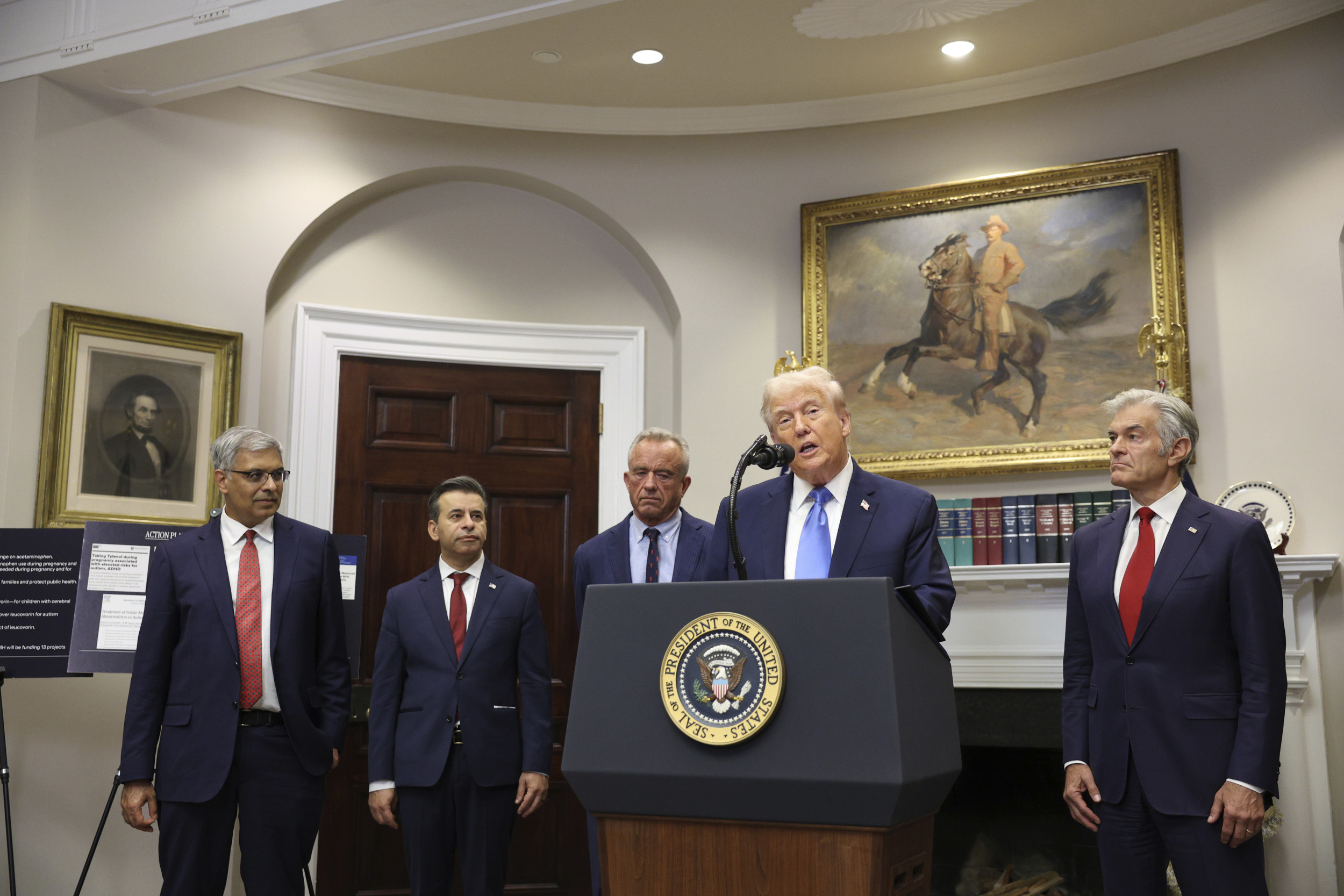
Florida Republicans are pushing to change labor laws and allow teens as young as 14 to work overnight shifts, in an effort to make up for shortfalls caused by deportations.
Why It Matters
There are more than 11 million immigrants with no legal status living in the United States, according to Pew Research Center, and President Donald Trump has vowed to deport millions of them. White House press secretary Karoline Leavitt even told reporters on January 29 that the new Trump administration recognized all migrants without status as criminals. But critics say deportations on this scale could mean labor shortages and lead to rising prices.

Jeff Roberson/AP
What To Know
The proposal to change labor law age restrictions, set to be reviewed by a Florida Senate committee on Tuesday morning, aligns with Gov. Ron DeSantis‘ argument that a younger workforce could help replace the “dirt cheap” labor provided by undocumented migrants.
“Why do we say we need to import foreigners, even import them illegally, when you know, teenagers used to work at these resorts, college students should be able to do this stuff,” DeSantis said last week at panel with border czar, Tom Homan.
The governor stated that Florida has already implemented measures to curb the hiring of undocumented workers, including a state law requiring large businesses to use E-Verify, a federal system that verifies employees’ citizenship status.
Now GOP lawmakers in Florida are considering eliminating all restrictions on how late and how many hours 16- and 17-year-olds can work, as well as ending their guaranteed meal breaks.
The proposal would also lift work-hour restrictions for 14- and 15-year-olds who are home-schooled or enrolled in virtual school.
Florida law prohibits 16 and 17-year-olds from working before 6:30 a.m. or after 11 p.m. on school days and during school hours unless they are enrolled in a career education program. They are also limited to working a maximum of 30 hours per week when school is in session unless a parent or school superintendent grants a waiver.
Republican state senator Jay Collins, R-Tampa is sponsoring the legislation.
Child labor violations in Florida tripled from 95 in 2019 to 281 in 2022, according to U.S. Department of Labor data cited by the Florida Policy Institute.
In 2023, violations decreased to 209 but still remained high.
What People Are Saying
DeSantis said: “Yes, we had people that left because of those rules, but you’ve also been able to hire other people. And what’s wrong with expecting our young people to be working part-time now? I mean, that’s how it used to be when I was growing up.”
What Happens Next
It remains to be seen if the bill will pass through the Florida legislature.




